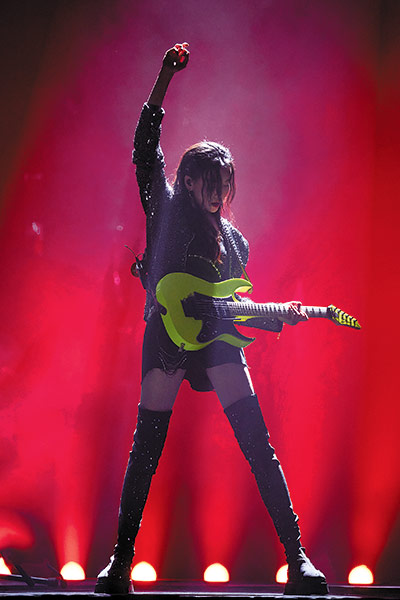

"I used to only perform English songs until, one day, a young man came to me and asked, 'Could you sing a song from your own ethnic culture for me?'," recalls Hu.
The young man was Li Shuang-ze, a legendary figure who wore many hats, including those of a painter, music producer, folk musician and writer.
"As I finished singing, Li stood up and led the applause for me, and the audience burst into cheers," says Hu. "I had never had such an experience before."
After that, Hu was encouraged by Li to write his own songs. He soon made friends with more musicians in the cafe, including singer-songwriter Hsien Yang and folk singer Yang Tsu-chun.
Back in the 1960s and early 1970s, young people in Taiwan were captivated by Western music and idolized singers such as Bob Dylan, Joan Baez and Paul Simon.
"Due to our inclination towards Western music back then, the Chinese approach to conveying emotions through literature, poetry, songs and music was somewhat limited," says Yang.
"We no longer focused on singing songs in English, but instead incorporated Mandarin, the Minnan dialect (spoken in southern Fujian province and Taiwan), the Hakka dialect and even the languages of the aboriginal people, to make our voices heard," she says.